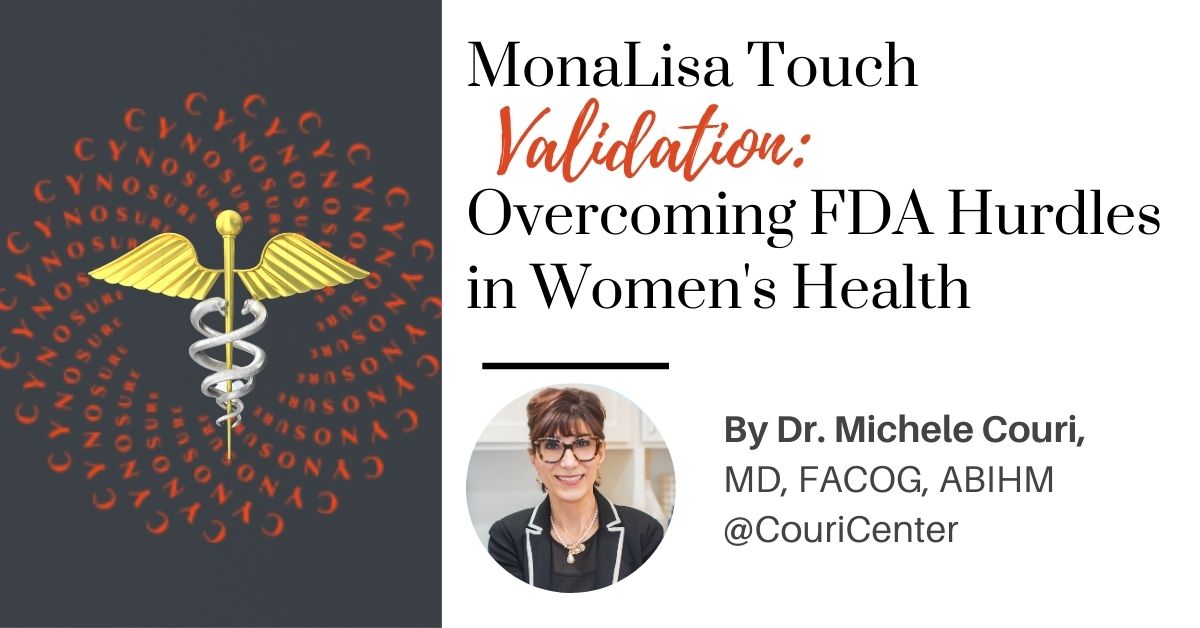
Summary
Dr. Michele Couri delves into the intricacies of women's health and the FDA's role in regulating treatments like vaginal laser therapy, notably MonaLisa Touch. She reviews the FDA's approach, arguing that rather than scrutinizing the therapy itself, the focus should have been on ensuring qualified providers administer it. Dr. Couri expresses her steadfast support for MonaLisa Touch, a therapy designed to alleviate symptoms of genitourinary syndrome of menopause. She highlights a recent study by Italian researchers, published in Climacteric, which reaffirms the long-term safety and efficacy of fractional CO2 laser therapy (MonaLisa Touch). This therapy positively impacts various aspects of women's health, including vaginal tissue restoration, improved sexual function, and reduced urinary tract infections. Dr. Couri concludes with gratitude for the researchers and shares the Couri Center's seven years of successful experience with MonaLisa Touch.
FDA & Recent Controversy in Healthcare
How many of you have read the articles about the FDA now admitting that phenylephrine, the common ingredient in many over-the-counter decongestants, does not work if used orally? For years, we, the public, have been led to believe that these products are effective in relieving congestion and, to what extent this adds credibility, they are FDA approved. Known by several pharmacists and researchers for years that the oral version of phenylephrine was ineffective, the FDA continued to allow these products to be marketed and sold to trusting Americans. In my field of Gynecology, I have often questioned the FDA’s stance on many products that pertain to Women’s Health.
MonaLisa Touch: Reclaiming Women’s Intimacy Despite FDA Obstacles
A perfect example occurred In 2018 when the FDA issued warnings about vaginal laser therapy used to treat genitourinary syndrome of menopause (GSM), the vaginal dryness, burning, and painful intercourse related to menopause. Despite data supporting its safety and efficacy, the FDA, almost out of nowhere, began a negative publicity campaign about this treatment that offers help and hope to millions of women worldwide. I have stood by this treatment, MonaLisa Touch, since we started offering this treatment to our patients in 2017. MonaLisa Touch safely and effectively restores the vaginal moisture and elasticity of the vaginal tissues and reverses the menopausal-induced vaginal dryness and pain with intercourse. In my opinion, the FDA went after the wrong target. Instead of regulating who should be operating the laser for this purpose, the FDA targeted the therapy itself. Too many unqualified providers were lasering women’s vaginas. That is where the trouble arose. But now, I am happy to report that a new study has come out again showing there is long-term clinical safety and efficacy of the fractional CO2 laser (MonaLisa Touch).
MonaLisa Touch: Italian Study Validates Remarkable Benefits for Women’s Health
Published in the August 31st issue of the journal Climacteric, Italian researchers concluded the following:
- Based on microscopic evidence, the fractional CO2 (MonaLisa Touch) laser is effective in restoring vaginal tissue negatively affected by the menopausal loss of hormones.
- This improvement continued after repeated cycles of the laser therapy.
- The following areas of health improved: vaginal, sexual, and urinary complaints.
- Vaginal elasticity and lubrication improved, which improved sexual function.
- The frequency of urinary tract infections improved after laser therapy.
- The researchers concluded that the vaginal CO2 (MonaLisa Touch) laser always led to vaginal regenerative results with no findings of vaginal fibrosis (scarring) in the women who received the vaginal laser therapy over time.
Seven Years of Success with MonaLisa Touch
At the Couri Center, we appreciate the work and dedication of the researchers involved in this very important study. We have seven years of experience using the MonaLisa Touch fractional CO2 laser therapy and have been very pleased with the results and improved quality of life of the women we have treated. If you would like to schedule an appointment to discuss genitourinary syndrome of menopause (GSM), vaginal dryness, burning, and painful intercourse related to menopause, and treatment options, please contact our office at 309-692-6838 for an appointment. New patients are welcome.
To your health,
Dr. Couri
DISCLAIMER: The information provided on this website is intended for general informational purposes only and is not intended to be a substitute for professional medical advice, diagnosis, or treatment. The information provided is current as of the date of publication or last review, but medical knowledge is constantly evolving, and the information may become outdated over time.
Source Used:
Casiraghia, A, et. al. Long-term clinical and histological safety and efficacy of the CO2 laser for treatment of genitourinary syndrome of menopause: an original study. Climacteric. 2023 Aug 31;1-8.
